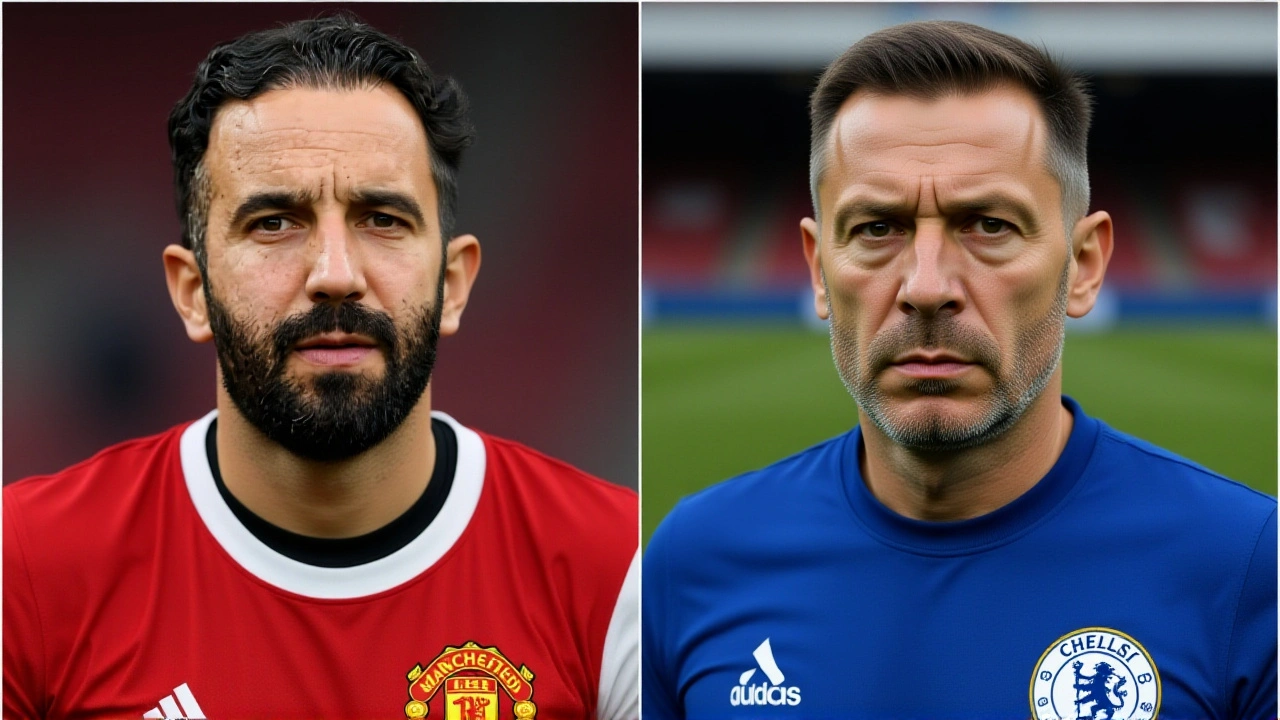Ruben Amorim – All You Need to Know
When talking about modern football leadership, Ruben Amorim, the Portuguese football manager who steered Sporting CP back to the top of the Primeira Liga. Also known as Rúben Amorim, he blends youthful energy with seasoned tactics. In the same breath, football manager, a professional who plans training, selects line‑ups and designs match strategies is the role that defines his daily grind, while Sporting CP, one of Portugal’s "Big Three" clubs with a strong academy tradition provides the platform for his ideas to flourish.
Why Ruben Amorim’s tactics matter
Amorim’s approach isn’t just about waving a clipboard; it’s a blend of pressing intensity, positional fluidity and rapid transition that has become his signature. He taught his squad to close down opponents in the 20‑second window, a principle that forces errors and creates quick scoring chances. This press‑and‑counter model links directly to the wider trend of high‑octane football seen in top European leagues. The result is a team that can dominate possession against rivals like Benfica, yet still explode into attack when the ball is won back. Those tactical choices have earned Sporting CP a resurgence in the UEFA Champions League, proving that a well‑crafted system can compete with the financial might of clubs from England or Spain.
Beyond the pitch, Amorim’s emphasis on youth development reshapes Portuguese football’s talent pipeline. By promoting academy graduates such as Pedro Gonçalves and Nuno Mendes, he shows that a manager can blend experience with home‑grown vigor. This strategy mirrors how clubs like Ajax nurture prospects, turning local talent into world‑class players. In practice, you’ll notice a higher number of minutes for younger squad members, a shift that also helps the national team stay competitive on the international stage.
When comparing Amorim to other big‑name managers, several patterns emerge. Like Pep Guardiola, he values ball possession, but unlike Guardiola’s rigid positional play, Amorim allows his forwards more freedom to roam and interchange. Compared with Diego Simeone’s defensive rigidity, Amorim’s risk‑taking can produce spectacular goals but also leaves moments of vulnerability. These contrasts illustrate how a manager’s philosophy—whether it leans toward control, aggression, or balance—directly shapes a club’s identity and results.
Fans and analysts often ask whether Amorim can sustain his success beyond a single season. Looking at his record, each campaign shows incremental improvements in points per game, goal difference, and European qualification stages. His adaptability—tweaking formations from a 4‑3‑3 to a 3‑5‑2 when needed—demonstrates a willingness to evolve rather than stick to a static blueprint. That adaptability is a key attribute of any top‑tier football manager seeking longevity in an ever‑changing sport.
Below you’ll find a collection of articles that touch on the same themes Amorim champions: high‑press tactics in La Liga, tactical battles in Serie A, and managerial insights from the Premier League. Whether you’re tracking the latest ticket price spikes for a Sevilla‑Barcelona clash, analyzing EFF’s political moves, or checking out the newest Xiaomi phone, the breadth of coverage reflects the dynamic world of sports and technology that frames modern football. Dive in to see how the ideas surrounding Ruben Amorim intersect with the wider football narrative and beyond.
Manchester United 2-1 Chelsea in Rain‑Soaked Old Trafford Thriller
Manchester United beat Chelsea 2-1 at rain‑soaked Old Trafford on Sep 20, 2025, easing pressure on manager Ruben Amorim and extending Chelsea's winless run at the stadium.
